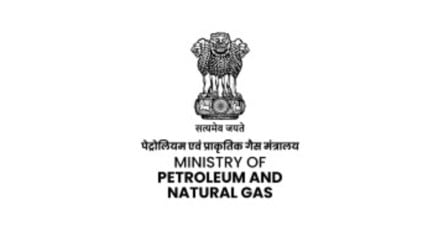The ministry of petroleum and natural gas has introduced of an investor-friendly stabilisation clause in its recent draft Petroleum & Natural Gas Rules, 2025, under which holders of exploration and production rights will be be protected from adverse impacts of future legal or fiscal changes, such as increases in taxes, royalties or other levies, via compensation or deductions.
Further, to reduce infrastructure duplication and encourage smaller players, the draft rules mandate that lessees declare underutilised capacity in pipelines and other facilities, and provide third-party access on fair terms, subject to government oversight.
“Strengthening environmental stewardship, the draft introduces detailed requirements for monitoring and reporting greenhouse gas emissions, establishes a regulatory framework for carbon capture and storage (CCS), and mandates site restoration funds with post-closure monitoring for a minimum of five years,” said the government.
In terms of data governance, all operational data and physical samples generated during exploration and production will belong to the Government of India. Lessees can use this data internally, but any export or external use requires government approval, with confidentiality protections lasting up to seven years.
The draft rules also propose the creation of a dedicated Adjudicating Authority, not below the rank of Joint Secretary, empowered to enforce compliance, resolve disputes, and impose penalties.
Additional provisions in the rules include clearer processes for lease mergers, extensions, and unitisation of reservoirs spanning multiple blocks, aimed at improving operational flexibility.
“These reforms replace the outdated Petroleum Concession Rules, 1949 and Petroleum and Natural Gas Rules, 1959, and follow the recent amendment of the Oilfields (Regulation and Development) Act, 1948. They are also timed to precede OALP Round X, India’s largest-ever exploration and production bidding round,” the government said.
Alongside the draft rules, the oil ministry has also released a revised Model Revenue Sharing Contract that aligns with the new framework, particularly regarding unitisation, merged lease areas, and infrastructure sharing obligations.
The revised Petroleum Lease format clarifies processes on lease relinquishment, reservoir extension and cancellation triggers, thereby providing greater operational certainty.
“As part of our focus to accelerate oil & gas exploration under the leadership of Prime Minister Shri Narendra Modi Ji, we are bringing in a series of pathbreaking policy reforms to promote exploration and production. These reforms, including the Draft Petroleum & Natural Gas Rules, 2025, will significantly enhance the ease of doing business for our E&P operators,” said Hardeep Singh Puri, Minister of Petroleum and Natural Gas in a post on X.
